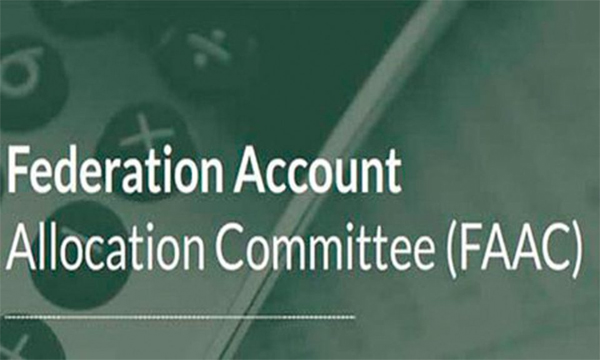
-
Falls just 5% to N7.14trn in 11 months
-
May surpass 2019 figure at year end
By Elizabeth Adegbesan
Federation Accounts Allocation Committee (FAAC) revenue to the Federal Government, 36 states and 774 local governments fell by just five percent to N7.14 trillion in eleven months (January to November) from N7.46 trillion in the same period of 2019.
Going by the recent trend in the volume of FAAC allocation, it is likely that the 5.0 percent gap would be wiped out with the year end distribution, surpassing the 2019 full year figure of N8.2 trillion.
This is contrary to presumptions earlier in the year that government revenue was under massive pressures from the impact of COVID-19, a sentiment that had lead to average 25 percent cut in the already enacted Appropriation Act of the Federal Government as well as all the 36 states.
READ ALSO:‘We’ll not cover up any immoral act in Deeper Life school’
The over-stated revenue pressure has also lead to massive borrowings from both local and international sources by the government.
FAAC data from the National Bureau of Statistics (NBS) showed that the highest allocation of N780.93 billion was made in April 2020 while the lowest allocation of N601.1 billion was made in October.
Further analysis showed that the Federal Government received N2.8 trillion, states received N1.96 trillion and local governments received N1.47 trillion during the eleven months period.
The remaining N91 billion was shared among oil producing states as derivation allocation and the revenue generating parastatals of the Federal Government.
Top 5 states with highest FAAC allocations in H1’20 are Delta (N111.8 billion), Lagos ( N50.03 billion), Akwa Ibom (N93.05 billion), Rivers ( N88.3 billion) and Bayelsa ( N70.5 billion).
States with lowest FAAC allocations in H1 ’20 are Cross river (N24.3 billion), Gombe ( N24.4 billion), Osun ( N25.5 billion), Plateau (N25.8 billion) and Ogun (N26.9 billion).
The actual revenue of 36 states in Half year 2020 (H1’20) stood at N2.77 trillion. This comprises N2.16 trillion FAAC allocation and N612.9 billion Internally Generated Revenue (IGR).
The five leading states with highest IGR in half year 2020 are Lagos (N204.5 billion), Rivers- N64.6 billion, Delta (N30.8 billion), Kano- N17.5 billion, Akwa-Ibom- N16.2 billion.
The Bottom 5 states with lowest IGR are Jigawa (N3 billion), Ekiti (N 3.2 billion), Adamawa (N3.8 billion) and Gombe (N3.9 billion).
2021 FAAC, IGR
Meanwhile, Twelve out of the 36 states have projected a revenue of N2.9 trillion to fund their budget of N2.95 trillion. The projected revenue consists of N1.3 trillion Internally Generated Revenue, IGR, and N1.6 trillion FAAC allocations.
The states are Ebonyi (IGR at N12.08 billion, FAAC at N52 billion), Edo (IGR at N36 billion, FAAC at N71 billion), Kano (IGR at N24 billion, FAAC at N52 billion), Kogi ( IGR at N57 billion, FAAC at N115 billion), Kebbi (IGR at N12.2 billion, FAAC at N42 billion) and Kwara (IGR at N28.7 billion, FAAC at N4 billion)
Others are, Lagos (IGR at N795.7 billion, FAAC at N962.5), Niger (IGR at N14.7 billion, FAAC at 71.9 billion), Ogun (IGR at N119 billion, FAAC at N 59 billion), Oyo (IGR at N102.8 billion, FAAC at N13.2 billion), Osun (IGR at N36 billion, FAAC at N71 billion), and Ondo (IGR at N28.5 billion, FAAC at N34.4 billion).
The post FAAC allocation in 2020 not bad appeared first on Vanguard News.
https://ift.tt/2Md9CZX by Urowayino Jeremiah via Vanguard News Albert Einstein Fools of Fortune
Comments
Post a Comment